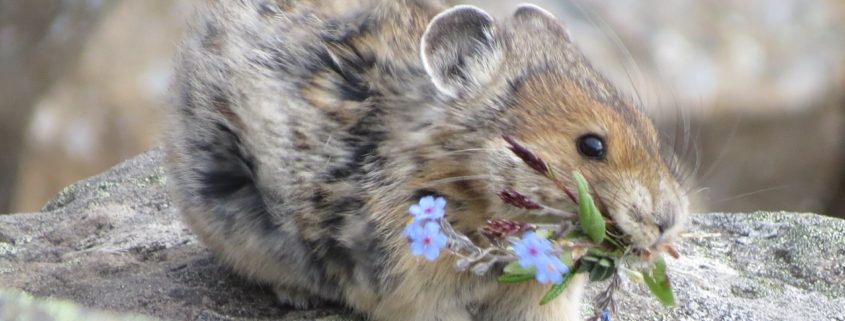UN Biodiversity Report Says One Million Species are at Risk of Extinction

Photo courtesy of Andrew DuBois
Overpopulation, Biodiversity, and Climate Change. It is all linked together and none of it is going in the right direction. That was my take-home message from the United Nations’ Report on Biodiversity released last week.
The report, a three-year effort produced by 150 expert authors representing 50 countries, estimated that over one million species – about one in four – may go extinct in the next several decades unless transformative change happens in human society.
According to the report, the five leading causes of this stark decline in biodiversity are habitat loss, direct exploitation of organisms, climate change, pollution and invasive species. The bottom line is that human populations are ever-growing (as are human appetites for stuff) such that humans are gobbling up native ecosystems to meet expanding needs (and wants). For instance, 75% of the earth’s land surface has been significantly altered (think wild lands are now crop lands), 66% of the oceans are affected (think warmer temperatures, plastic pollution), and more than 85% of wetlands area is lost (think bulldozers).
Besides the fact that destroying a million species that co-inhabit this planet seems morally reprehensible, major biodiversity declines affect human sustainability and welfare in all sorts of ways. For instance, without the buffering capacity of natural ecosystems our food and water supplies are vulnerable. Reduced genetic diversity leaves our croplands vulnerable to disease, drought, or other stressors. Major damage to wetlands and oceans, ecosystems on which many of our food species depend, may leave us without sustainable food sources. “The biosphere, upon which humanity as a whole depends, is being altered to an unparalleled degree across all spatial scales.”
It also turns out that, just as the case with climate change impacts, the impacts of biodiversity losses will be felt disproportionately by the world’s indigenous peoples and the world’s poorest peoples, both of whom are the least responsible for this mess.
Over the past 50 years, human population has doubled and the global economy has grown over four-fold, driving up demands for energy and materials and driving down biodiversity. The only way to break this cycle is to institute transformative changes to our society that will result in sustainable use of resources. This means, for instance, rethinking definitions of success and related incentive structure: stop measuring success by GDP and start measuring it by ecological footprint; provide incentives for biodiversity friendly agricultural practices and habitat restoration and remove incentives for extracting fossil fuels and cutting down forests.
Boiling it down, it means that we need to stem population growth and start recognizing the immense value of natural lands and waters to human life and global sustainability. We need to stop thinking that technology will solve this problem and begin listening to (and replicating) indigenous peoples whose lands are generally in better condition and lifestyles are more sustainable overall than ours. And we better hurry.






